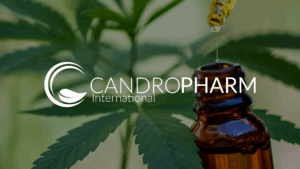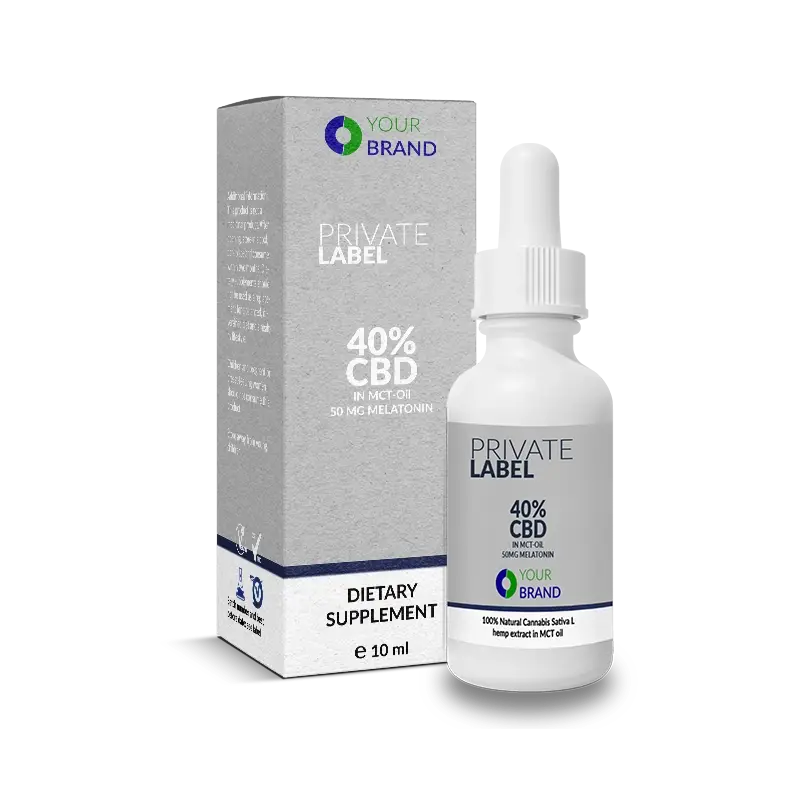Is it safe to take CBD every day?
Comprehensive Safety Guide
Cannabidiol (CBD) has caught on as a go-to wellness supplement for folks looking to manage stress, sleep better, or just support their overall health. As more people try it, the question keeps popping up: is it actually safe to take CBD every day? For most people, using CBD regularly seems safe as long as you’re responsible, but honestly, everyone reacts a bit differently. Dosage, your health, and the quality of your CBD all play a part here.
Taking CBD daily might give you steady benefits—think relaxation or less discomfort—but there are some risks to consider, too. You could get tired, have a dry mouth, or run into issues if you’re on certain meds. So, it’s smart to pay attention to the products you pick and maybe check in with a healthcare professional before making CBD a daily habit.
Key Takeaways
- Most people can safely use CBD every day.
- Watch out for possible side effects and how CBD might interact with other meds.
- Quality and dosage really matter if you’re using CBD daily.
Understanding CBD and Daily Use
CBD, also known as cannabidiol, has become a mainstay for people searching for natural ways to tackle wellness issues. Here, let’s dig into what CBD actually is, how it works in your body, and why so many are adding it to their daily routines.
What Is CBD (cannabidiol)?
CBD stands for cannabidiol. It’s a non-psychoactive compound that comes from the cannabis plant. Unlike THC (tetrahydrocannabinol), which gives you that classic “high,” CBD is more about therapeutic effects.
Most legal CBD these days is extracted from hemp, not marijuana. You’ll find it in oils, capsules, gummies, and topical creams—some made for everyday use. There’s even Epidiolex, an FDA-approved prescription CBD for certain epilepsy types, which shows the medical side of things.
How CBD Works in the Body
CBD works by interacting with your endocannabinoid system (ECS). That’s a web of receptors all over your brain and body that help control stuff like mood, sleep, and inflammation. CBD doesn’t latch directly onto the main receptors (CB1 and CB2), but it nudges them in a way that helps your body stay balanced.
It also messes with serotonin receptors, which can affect how you feel, how you handle stress, and even how you perceive pain. That’s probably why people reach for CBD when they’re anxious, in pain, or can’t sleep.
If you take CBD every day, it might build up in your system. Some folks think that makes it work better over time, though the science there is still developing.
Daily CBD Use and Its Growing Popularity
More and more people are weaving CBD into their daily lives. They say it helps with chronic stuff like stress, anxiety, and pain. Taking it regularly seems to offer steadier relief compared to just using it now and then—at least, that’s what users report.
CBD is everywhere now: in food, drinks, skincare—you name it. But, let’s be honest, the safety of daily CBD really depends on getting the dose right, choosing a quality product, and considering your own health needs. Checking with a healthcare provider is always a good idea before you jump in.
Is It Safe to Take CBD Every Day?
People have a lot of questions about using CBD daily—what does it do to your body, what’s the difference between prescription and over-the-counter stuff, and how does THC fit in? Knowing these things can help you decide what’s right for you.
Current Research on CBD Safety
Most research so far suggests that CBD is well-tolerated by most folks, as long as you use it sensibly. Clinical trials with Epidiolex (the FDA-approved CBD) back up its safety for tough epilepsy cases. But when it comes to non-prescription CBD, it’s a bit of a wild west—less testing, less certainty about what you’re getting.
People have reported side effects like dry mouth, diarrhea, and drowsiness. It gets trickier if you’re taking meds like blood thinners, since CBD can mess with those. So, if you’re thinking about using CBD every day, talking to your doctor is pretty important.
Differences Between Prescription and Non-Prescription CBD Products
Prescription CBD (like Epidiolex) has to meet tough FDA standards, and the dosage is set. It’s made for specific medical conditions, like epilepsy, and gets tested thoroughly. Over-the-counter CBD is all over the place in terms of purity and strength.
One study actually found that a quarter of store-bought CBD products had less CBD than the label claimed. Some even had THC, and you wouldn’t know unless you checked the fine print (if it’s there at all). That lack of oversight means you could get side effects or drug interactions you weren’t expecting.
Comparison Table: Prescription vs. Non-Prescription CBD
| Aspect | Prescription CBD (e.g., Epidiolex) | Non-Prescription CBD |
|---|---|---|
| Regulation | Highly regulated by FDA | Limited regulation |
| Purity/Dosage | Standardized and accurate | May vary widely |
| Uses | Specific medical purposes (e.g., epilepsy) | General wellness, pain relief |
Role of THC in CBD Products
Full-spectrum CBD products almost always have a little THC—the psychoactive part of cannabis. In the U.S., the legal limit is 0.3%, but even that tiny bit could cause side effects or show up on a drug test if you’re unlucky.
If you want to avoid THC altogether, you can look for broad-spectrum CBD or CBD isolates. Still, you’ve got to watch out—sometimes labels aren’t accurate, and you could get THC without realizing it. Not great if you’re sensitive or have to take drug tests for work.
Potential Benefits of Daily CBD Use
People use CBD every day hoping for a range of health benefits—from better mental health to help with chronic aches. Here’s a look at where CBD might help, based on what we know so far and what’s out there on the market.
Anxiety and Mood Regulation
CBD might help ease anxiety by working with certain brain receptors that control mood. Some research points to a calming effect, which could help with stress or racing thoughts. Since CBD doesn’t get you high like THC, it’s a popular pick for folks who want to relax without feeling out of it.
If you struggle with general or social anxiety, some studies say low to moderate doses of CBD can help. But everyone’s different, so finding the right amount can take some trial and error.
Sleep Improvement and Relaxation
CBD might help you sleep better, especially if stress or an overactive mind keeps you up. By helping you relax and quiet your thoughts, CBD could make it easier to drift off and stay asleep.
Some people swear they get deeper sleep after adding CBD to their nighttime routine. Oils or gummies before bed are a common choice for those looking for a natural sleep aid.
Seizure and Epilepsy Management
CBD has made a real difference for some people with seizure disorders like Lennox-Gastaut and Dravet syndromes. The FDA even approved Epidiolex for these conditions. Studies show that daily CBD can cut down on how often and how badly seizures hit—at least for some patients.
If you’re thinking about CBD for epilepsy, definitely talk to your doctor. Epidiolex, for example, requires medical supervision.
Pain and Inflammation Relief
CBD might have anti-inflammatory effects that help with chronic pain or soreness. People use it for stuff like muscle aches, arthritis, or nerve pain. Instead of just masking pain, CBD could actually address the inflammation causing it.
You can rub creams or balms right on sore spots, or take oils and capsules for more general relief. A lot of folks use CBD every day to keep pain at bay, but, again, it’s not a one-size-fits-all solution.
Risks and Side Effects of Taking CBD Every Day
Sure, daily CBD might help, but it’s not risk-free. Some people get mild to even severe side effects, and there are still questions about how safe it is long-term—especially if you’re on other meds like blood thinners.
Common Side Effects
Most people handle CBD pretty well, but there are some side effects to look out for:
- Dry Mouth: You might notice your mouth feels dry or sticky. Not fun.
- Fatigue and Drowsiness: Some folks get sleepy or just feel wiped out.
- Digestive Issues: Diarrhea or a loss of appetite can happen, though it’s not super common.
How bad these symptoms get usually depends on how much you take, your health, and how pure the product is.
Long-Term Safety Considerations
We just don’t have a ton of research on what happens if you use CBD every day for years. Some concerns include:
- Purity and Dosage Inconsistencies: A lot of products aren’t labeled right, or have less CBD than they claim. Sometimes, you even get THC sneaking in, which can be a problem if you’re not expecting it.
- Accumulated Side Effects: Little things like tiredness or appetite changes might add up over time for some people.
Until we know more, it’s best to be cautious with daily CBD and check in with your doctor if you notice anything weird.
Drug Interactions: Blood Thinners and More
CBD can mess with other meds, especially blood thinners like warfarin. This could make bleeding more likely or change how your meds work.
Other meds that might interact include:
- Sedatives: You could end up extra drowsy if you mix CBD with sleep aids.
- Antidepressants: CBD might change how these meds affect your mood.
If you’re on any medication, talk to your healthcare provider before adding CBD to your daily lineup.
Considerations for Specific Health Conditions
If you’re thinking about adding cannabidiol (CBD) to your daily routine, it’s worth considering how it might affect certain health issues. Below, let’s touch on what we know about CBD’s impact on mental health, liver function, and what to keep in mind if you’re pregnant or older.
CBD Use for Schizophrenia and Related Disorders
Researchers are starting to see that CBD might offer therapeutic benefits for people living with schizophrenia or similar conditions. THC, on the other hand, can actually make psychotic symptoms worse, while CBD seems to have antipsychotic effects. It looks like CBD interacts with certain brain receptors that help regulate neurotransmitters like dopamine—those are pretty central in these disorders.
Still, this field is pretty new, and honestly, no one has nailed down the best dose of CBD for schizophrenia yet. Anyone considering CBD should talk with a mental health professional first and make sure it fits with their current treatment plan. Mixing things without guidance could cause unwanted interactions or throw things off balance.
Key Points to Remember:
- CBD won’t make you feel “high.”
- Some clinical trials hint it might reduce psychosis severity, but we just don’t know enough about long-term safety yet.
- If you’re already taking prescription antipsychotics, only add CBD under medical supervision.
CBD and Liver Health
The liver breaks down CBD, so using it might affect liver enzymes or interact with other meds that rely on the same metabolic pathways. Some studies show that high doses of CBD can bump up liver enzyme levels, which could signal your liver’s under a bit of stress.
If you already have liver issues, it’s smart to be extra careful with daily CBD. Regular liver function tests might be a good idea if you’re adding CBD to your routine.
Safety Tips:
- Start with low doses and only increase if you tolerate it well.
- Steer clear of mixing CBD with alcohol or anything else tough on the liver.
- If you’re on other meds that stress the liver, talk to your doctor first.
| Liver Enzyme | Impacted by CBD | Potential Concern |
|---|---|---|
| ALT (Alanine Aminotransferase) | May rise at higher doses | Could mean liver stress |
| AST (Aspartate Aminotransferase) | Sometimes elevated | Needs a doctor’s look |
CBD During Pregnancy and for Older Adults
Generally, using CBD during pregnancy isn’t recommended—the research just isn’t there yet on how it might affect a developing baby. Cannabinoids like CBD can cross the placenta, and there’s a chance they could mess with normal growth or brain development.
For older adults, CBD might help with chronic pain, arthritis, or trouble sleeping. But as we age, our bodies handle substances differently, so there’s a higher chance of being sensitive to CBD’s effects or of running into interactions with other meds.
Recommendations:
- Pregnancy: Best to skip CBD completely unless your doctor says otherwise.
- Older Adults:
- Start low and go slow—see how your body reacts.
- Watch out for side effects like dizziness or feeling extra tired.
- Double-check for any clashes with meds for blood pressure, heart, or brain health.
Choosing and Using CBD Products Safely
If you’re thinking about adding cannabidiol (CBD) to your daily routine, it really pays to focus on product quality, get advice from your healthcare provider, and keep an eye on how much you’re taking and how it makes you feel. These steps can make CBD use safer—and frankly, more worthwhile.
Selecting High-Quality CBD Products
We strongly recommend picking CBD products that have gone through third-party lab testing. These tests check for potency, purity, and make sure there aren’t any nasty extras like pesticides, heavy metals, or leftover solvents. Look for a certificate of analysis (COA) from a legit lab—it should be easy to find if the brand’s trustworthy.
Key Factors to Consider:
- Source of Hemp: Go for products made from organic hemp grown in places with tough farming rules, like the U.S. or EU.
- Extraction Method: CO₂ extraction stands out as one of the safest and most effective ways to get high-quality CBD.
- Product Label Transparency: Clear labels that tell you CBD concentration, serving size, and what else is inside? That’s what you want.
- Forms: Oils, tinctures, gummies, capsules—pick what fits your lifestyle, but keep bioavailability and convenience in mind.
| Criteria | Why It Matters | Recommendation |
|---|---|---|
| Source of Hemp | Helps you avoid toxins and get quality CBD | Organic, U.S. or EU grown |
| Extraction Method | Prevents solvent leftovers in your CBD | CO₂ extraction |
| Third-Party Testing | Confirms safety and what’s actually in the product | Look for a COA |
Consulting with Healthcare Professionals
Before you make CBD a daily thing, talk to your healthcare provider—especially if you’re on prescription meds. CBD can mess with how your body processes certain drugs, mainly through the liver’s cytochrome P450 enzyme system. A medical pro can help you spot risks, tweak doses, and tailor CBD use to your needs.
Some good questions for your doctor:
- Will CBD interact with any of my current meds?
- Are there specific health conditions where I should be extra careful with CBD?
- What’s a smart starting dose for me?
If you have liver disease or you’re pregnant, getting medical advice is even more important.
Monitoring Dosage and Effects
If you want to use CBD safely and actually get results, pay attention to how your body reacts as you tweak the dose. Most folks start small—maybe 10–20 mg per day—and bump it up slowly to keep side effects (like dry mouth or drowsiness) in check.
Steps for Safe Dosage Monitoring:
- Start with a low dose and slowly increase it.
- Jot down which product you used, how much, and how you felt each day.
- Adjust the dose based on how you’re feeling and what symptoms you’re aiming to improve.
- If you notice side effects like nausea or fatigue, dial it back or talk to your doctor.
Checking in regularly with your healthcare provider can help you make sense of your notes and keep your CBD routine both safe and effective. Plus, tracking your experience can highlight which products actually work for you and help your doctor give better advice.
Frequently Asked Questions
When people talk about daily CBD use, the conversation usually covers possible side effects, dosing, long-term impact, and risks tied to age or taking too much. Let’s dig into the main questions people have.
What are the potential side effects of daily CBD use?
Most people tolerate CBD well, but it can sometimes cause dry mouth, tiredness, loss of appetite, diarrhea, or drowsiness. If you’re taking medications like blood thinners, CBD might interact—so checking with your doctor is a must.
Are there any age-specific benefits or risks associated with daily CBD consumption?
For younger folks with epilepsy, CBD can help control seizures (with a doctor’s supervision). Older adults might find relief from pain, inflammation, or sleep problems. But don’t forget—age can increase the risk of med interactions, so stay cautious.
How does consistent CBD intake affect brain health?
Some studies indicate regular CBD might protect the brain and support mental health by easing anxiety or stress. Still, we need more research to really understand what happens to cognitive function or neurological health over the long haul.
What is considered a safe dosage of CBD for routine use?
There’s no one-size-fits-all answer—it depends on your weight, metabolism, and health status. Most people start with 10–20 mg per day and adjust based on how they feel. Slow and steady usually wins here.
Can the long-term use of CBD cause ocular side effects?
So far, there’s not much evidence that CBD harms your eyes. But if you do notice any weird changes in your vision while taking it regularly, don’t ignore it—talk to your doctor.
Is it possible to experience negative effects from consuming too much CBD?
If you take too much CBD, you might feel nauseous, dizzy, or just really tired. Honestly, it’s a good idea to stick to the recommended dose and pay attention to how your body reacts. No need to push past what feels comfortable—why risk it?









